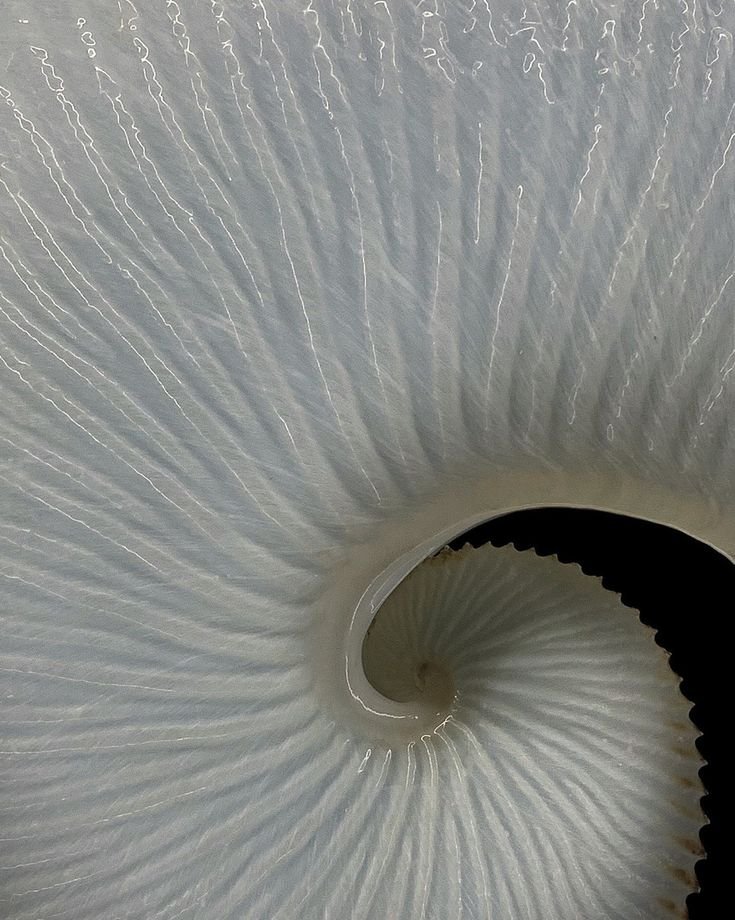The Next Wave of Feminism is Matriarchy
Important announcement: I’m currently writing a community-funded book based on this essay. If you’d like to support the project, you can place a pre-order here. Thank you for the support and for helping me bring this to life.
Feminism in the 2020s is fractured. Between the TikTok tradwives, the repealing of reproductive rights in the US, and the juxtaposition of Oscars outrage with Palestinian women getting c-sections without anesthesia, it seems the feminist cause has lost focus.
For the past century, feminist movements have made incredible strides in securing women the right to vote, attend university, and assume leadership positions. In many places, women have the same rights as men on paper. But we are still far away from liberation.
The global gender gap has only closed by 4% since 2006 (stagnant at around 70%). It will take 131 years for the gap to be closed at current rates. One in three women still experience some form of violence. I can go on, but progress has reached a dead end, and it’s clear why. We still live in a patriarchy.
Mainstream feminism has been focused on giving women more legal rights and “empowerment” with the assumption that the patriarchy will go away when more of us are CEOs and presidents. But it’s clear now that the corporate feminist dream of being able to “smash”, “lean in”, or “girlboss” our way out of the patriarchy is dead. It turns out we can’t take down the patriarchy with the patriarchy.
Here’s a “fuck the patriarchy” sticker you can buy from a company owned by a man!
Modern feminism has been clear on one thing: we must dismantle the patriarchy. But it’s not clear what will take its place.
It’s time for feminist thought to take a different approach. We need nothing short of a transformation of our social structures. It’s time to focus on creating a matriarchy.
Matriarchy is patriarchy in reverse, but not in the way you think.
A patriarchy is a hierarchical social structure where men are in charge. The etymology of the word patriarchy literally means “domination of the fathers”. In this case, the Greek word -arche means domination or rule, as in “monarch” or “archbishop”.
If the patriarchy were a shape, it would be a triangle with (rich, white, cis) men at the top and everyone else organized by how much or little power their intersecting identities give them.
Organizing people in this way creates and normalizes relationships of domination. The higher up you are in the triangle, the more power you have to dominate others. I learned from bell hooks that domination and love can never coexist. Domination only ever alienates and creates harm.
Seen in this way, patriarchy has much more damaging effects than “just” subjugating women. Racism and capitalism could not have existed without patriarchy. A climate crisis that results from dominating nature wouldn’t exist without patriarchy.
A matriarchy is a social structure where women (mainly mothers) are at the center. The idea that every human being originates from a mother is reflected in the cultural norms of a matriarchal society.
The Greek word -arche also means “beginning”, as in “archeology” or “archetype”. Matriarchy literally translates to “in the beginning, the mothers”. In a matriarchy, there is no top or hierarchy, there is only an inclusive circle where everyone’s needs are met.
Dr. Heide Goettner-Abendroth, a researcher of Matriarchal Studies, is a pioneer in looking at human history through a non-patriarchal lens. Her 2022 book, Matriarchal Societies of the Past and the Rise of Patriarchy examines archeological evidence to bring to light the groundbreaking revelation that for most of history, humans have lived in peaceful matriarchal societies.
Patriarchy is so deeply entrenched in our systems that it can be impossible to imagine an alternative. A few years ago, I read Yuval Noah Harari’s book, Sapiens (Harari has a Ph.D. in history), and was disappointed to find he couldn’t explain why men were in charge in our society. At times, Harari’s hypotheses seemed to veer into dangerous naturalistic territory. Newsflash: humans aren’t apes. We don’t have an innate drive to dominate others.
The hot take of Goettner-Abendroth’s book is that patriarchy is not natural, it’s only historical. It’s only a legacy.
She goes even further contrary to the patriarchal belief that men are the pioneers, the heroes, the inventors of humanity. She says that women were the driving force in early human evolution because they had the responsibility of raising children.
What we call the “hunter-gatherer” phase of human history, Goettner-Abendroth splits into a gradual evolution from gathering to hunting to fishing, which only progressed out of necessity.
Contrary to the myth of the “mighty male hunter” delivering regular meat feasts, Goettner-Abendroth infers that gathering provided most of the nutrition of a tribe, and mothers did most of this gathering.
Mothers were the first inventors, the first healers, the first developers of language, and the discoverers of fire.
Anyone who is a mother will understand the powerful urge to protect your child. It’s not hard to imagine an ancient mother going to great lengths to ensure the wellbeing of her children, memorizing an encyclopedia’s worth of plant knowledge, and inventing medicines that would bring relief to her sick little ones.
Goettner-Abendroth finds that ancient human religions were based around birth/rebirth and vulva worship. Our ancestors had no way to connect sex with conception and believed women’s bodies were the gateways to the spirit world. For this reason, these societies had no concept of fatherhood. Instead, men were brothers, free to be who they were, doing their part to support their kinfolk. No exhausting manhood agenda necessary.
According to Goettner-Abendroth, the patriarchy emerged slowly around 10,000 years ago, in the Steppe at the crossroads of Europe and Asia. Climactic fluctuations created food scarcity, so communities were pushed away from agriculture and towards animal herding. This created herder warrior cultures and the first armed conflicts and accumulation of resources. The origins of modern patriarchy.
Herder warrior cultures were kind of like the Dothraki from Game of Thrones.
The violent, dominant, and mobile nature of these cultures meant that peaceful matriarchal communities stood very little chance against them.
When I first started Chicks For Climate (now Chix), I wanted to bring ecofeminism to a new generation through social media. I realized through doing this work that the climate crisis couldn’t be solved without a complete overhaul of our social structures.
Using the principles of ecofeminism, I wrote a manifesto for how to create a better society, identifying four properties of our current society that need to change if we hope to survive on the planet.
It was only upon reading Goettner-Abendroth’s book that I realized that reciprocity, community, love, and regeneration were properties of a matriarchy. According to Goettner-Abendroth, a social structure is considered a matriarchy if it satisfies all four of the following conditions:
Balanced economic reciprocity without accumulation through a gift economy.
Matrilineal kinship and gender equality. In other words, where the mother is the center of the household and society, and every person we interact with is equal like a sibling.
An egalitarian society of consensus where everyone recognizes we have shared interests so we make decisions unanimously. This is in sharp contrast to the division and harmful conflict that defines patriarchal societies.
A culture that recognizes the sacredness of life.
In order, these correspond to the properties of reciprocity, community, love, and regeneration that I outlined in the post. These solutions came intuitively to me before I had ever read anything about matriarchal societies. To me, this is evidence of their truth and innateness. Interestingly, I could only accept these ideas as within the realm of possibility after I did some healing.
Patriarchy does a great job of disconnecting us from each other and the sacredness of life itself. It’s about giving the least amount possible while receiving the most in return. But this is incongruent with the reciprocal laws inherent in nature.
Miki Kashtan, the founder of the Nonviolent Global Liberation Community, wrote in a recent paper that patriarchy is characteristic of a “loss of trust in the flow of life”. We have now reached a point where we are so disconnected from the flow of life that we are destroying the only life we know exists.
Matriarchy, by contrast, is about giving the most and being thankful to receive the most in return. The climate crisis would never exist if we approached nature with this mindset instead. A transition to matriarchy would ensure not only joy and liberation but a restoration of trust in the flow of life.
So how do we begin? Genevieve Vaughan, a feminist researcher whose work focuses on the gift economy, says women must lead this transition.
Through motherhood and domestic work, women have already been doing free work (or giving gifts) to our society, for centuries. Women and mothers understand what it means to pay close attention to the needs of another, otherwise the human race would not have survived.
Vaughan says, “Men have been taught that they are something other, that they have a manhood agenda of dominance and competition, and our institutions and economy have been built on that lie”.
A matriarchal society can look however we want it to, as long as it meets the four conditions of reciprocity, community, love, and regeneration.
Instead of scarcity for most and abundance for the few, we can have abundance for all. We can interrupt human impulses towards domination and exploitation by making sure everyone can get their needs met. We can slowly replace the transactional exchange economy with a trusting gift-giving economy. We can give leadership to councils of women elders. We can move away from hierarchical nuclear families towards mother-centered communities where everyone takes part in the rearing of children. We can replace violence with love and healing. We can breathe clean air again. We can rest.
We are at no better time in history to start thinking about societal transformation of this magnitude. Almost half the world has a smartphone they spend over 3 hours a day on. Ideas can spread incredibly fast, and when they do, we have the technology to make swift large-scale changes.
The feminist cause so far has been focused on giving women the power and authority to solve their own problems. But in creating a matriarchy, the structures that uphold power and authority in the first place disappear into irrelevance.
For all its emphasis on “winning”, no one really wins in a patriarchy. Men are taught to disconnect themselves from their emotions, which creates deep pain. Even the ultra-rich, who enjoy luxury beyond measure, are disconnected from the joy of reciprocity and loving community. This is a tragedy and unenviable. The reality is that patriarchy doesn’t allow anyone to live in liberation.
It is only through a matriarchy that we can live in true equality. It’s time for feminists to name the society we want. It’s a matriarchy. Not “women rule”, but “in the beginning, the mothers”.
A loving, regenerative, reciprocal, and community-based society is possible and within reach. Accepting this possibility is already a huge step towards resisting the patriarchy and its myth of inevitability. If we succeed in uniting the power of modern technology with the egalitarian values of matriarchy, there will be centuries of peace and joy on this planet.
Further reading:
I’m still making my way through this paper by Dr. Heide Goettner-Abendroth that explains how we can make the matriarchy a reality. It reads like a sort of manual for the matriarchy.
I also go deeper into topics of matriarchal reclamation on my Substack, Letters From a Young Matriarch 🌀
Sources:
https://www.pnas.org/doi/10.1073/pnas.2014403117
https://www.weforum.org/publications/global-gender-gap-report-2023/
http://gift-economy.com/36-steps-toward-a-gift-economy/
https://explodingtopics.com/blog/smartphone-usage-stats
https://www.gsma.com/newsroom/press-release/smartphone-owners-are-now-the-global-majority-new-gsma-report-reveals/#:~:text=Smartphone owners are now the global majority%2C New GSMA report reveals,-Like what you&text=11th October 2023%2C London,2023 (SOMIC) published today.





